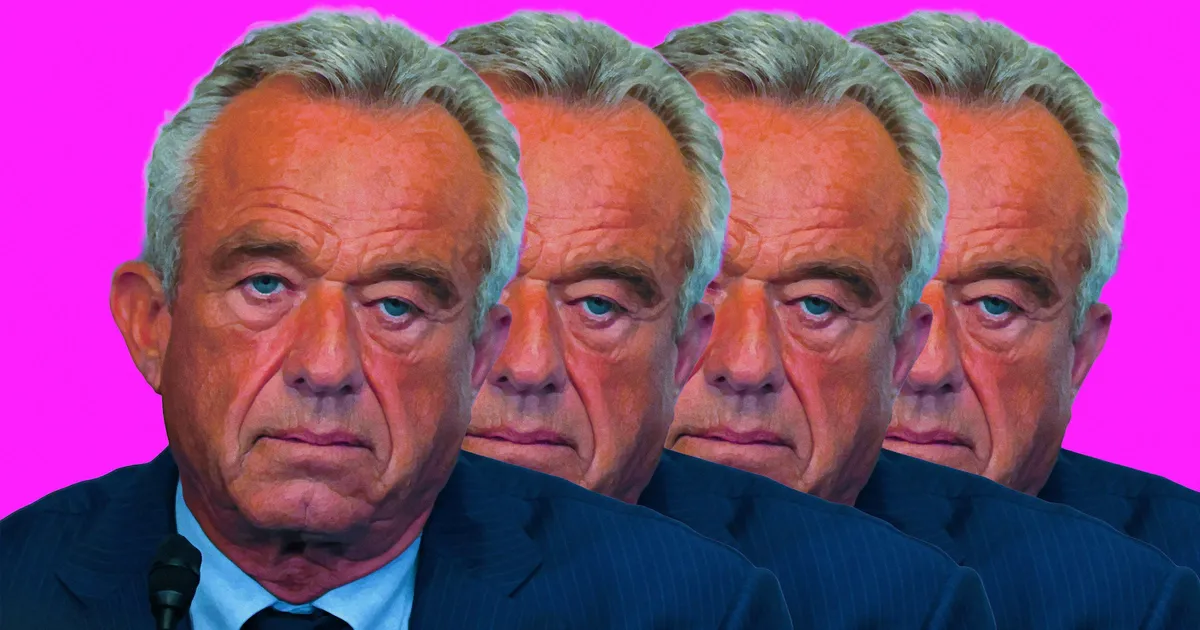
Approximately ten weeks before his tragic assassination in 1968, Robert F. Kennedy, affectionately known as Bobby, delivered a powerful address at Vanderbilt University. This speech is often regarded as one of his most significant moments, where he inspired students with a vision for the future. Quoting his presidential uncle, John F. Kennedy, who had faced a similar fate just five years earlier, Bobby emphasized that the students represented the generation with the least ties to the present and the strongest connections to the future. He spoke passionately about the need for hope amidst the turmoil of the Vietnam War and civil unrest, which threatened the very fabric of American society.
Fast forward to 2025, and Bobby Kennedy's son, Robert F. Kennedy Jr., now serving as the U.S. Secretary of Health and Human Services, has adopted a controversial anti-scientific approach. His skepticism regarding vaccines, particularly those developed for COVID-19, has led to the cancellation of vital research initiatives. This decision has sparked widespread concern about the potential consequences for future generations, as his actions may hinder the progress of crucial health technologies.
Among the most alarming developments is Kennedy Jr.'s decision to halt the advancement of mRNA vaccines and cancel $500 million in research contracts. This decision comes at a time when researchers believe they are on the brink of a groundbreaking achievement: the creation of a universal cancer vaccine using mRNA technology. The implications of such a breakthrough could be monumental, yet the younger Kennedy's actions jeopardize this potential.
Virologist Rick Bright, who previously led the Biomedical Advanced Research and Development Authority (BARDA), has expressed grave concerns regarding the future of mRNA research in the United States. After being ousted from his position due to whistleblowing, Bright has been a vocal advocate for the importance of mRNA technology in public health. In a recent op-ed for the New York Times, he likened U.S. dominance in mRNA research to a military advantage, warning that Kennedy Jr.'s anti-vaccine policies threaten this strategic asset.
Bright highlighted that abandoning mRNA technology would not only result in a loss of public health benefits but would also compromise national security. He argued that the ability to rapidly develop and deploy medical countermeasures is as critical to defense as any military capability. In an era where biological threats can be engineered, losing this edge would leave the United States vulnerable.
In a thought-provoking interview with Politico, Johnathan Kagan, co-founder of Corner Therapeutics, underscored the reality of a new arms race—not in nuclear weapons, but in biomedical technology. Kagan identified China as a major competitor in this arena, citing his observations of the country's enthusiasm for scientific innovation and investment in mRNA applications. He warned that if the U.S. does not recognize the urgency of this situation, it risks losing its leading position in the global vaccine landscape.
While the U.S. currently possesses a robust arsenal of mRNA technology, experts like Bright caution that this advantage is precarious. The potential for biological threats necessitates a proactive approach to research and development in this field. Without strong leadership and support for mRNA initiatives, the United States may find itself at a significant disadvantage, both in public health and national security.
As the world navigates the complexities of vaccine development and pandemic response, the legacy of leaders like Bobby Kennedy serves as a reminder of the importance of hope, innovation, and the need for informed decision-making in the face of uncertainty.